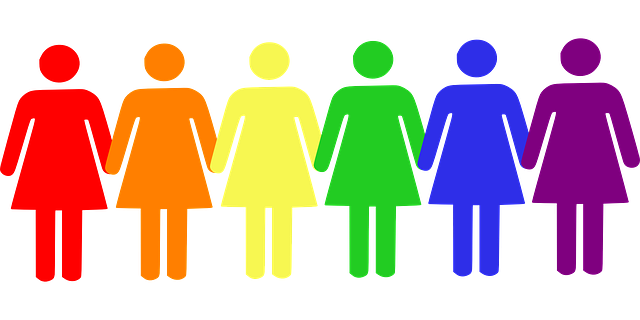Why we need Feminism?
Feminism is a term that has become a buzzword in recent years, but what exactly is it, and why do we need it? At its core, feminism is a movement aimed at achieving equality for all genders, and it’s a movement that’s more important now than ever before.

History
Feminism has a long history, spanning several centuries and continents. While the exact origins of feminism are debated, it is generally agreed that feminist movements emerged in response to women’s oppression and inequality.
The first wave of feminism began in the late 19th and early 20th centuries and focused primarily on women’s suffrage, or the right to vote. Women’s suffrage movements emerged in Europe and North America, and women eventually gained the right to vote in several countries, including the United States and the United Kingdom.
The second wave of feminism emerged in the 1960s and 1970s and focused on a broader range of issues, including reproductive rights, workplace discrimination, and gender roles. This wave of feminism was characterized by the emergence of feminist theory, which challenged traditional notions of gender and power.
The third wave of feminism emerged in the 1990s and focused on issues of diversity, inclusivity, and intersectionality. This wave of feminism recognized that women’s experiences are shaped by factors such as race, class, sexuality, and ability and sought to address these issues within the feminist movement.
Today, feminism continues to evolve and adapt to new challenges and opportunities. The movement has made significant progress towards gender equality, but there is still a long way to go, particularly for marginalized groups of women. Feminism remains an essential movement for promoting gender equality and challenging the social norms and attitudes that perpetuate inequality.
There are many reasons why we need feminism, and in this blog post, we’ll explore just a few of them.
- Gender Inequality is Still Rampant
Despite progress over the past few decades, gender inequality is still very much alive and well. Women continue to earn less than men for the same work, are underrepresented in positions of power, and are often subjected to sexual harassment and discrimination. These issues are not only harmful to women, but they also have a negative impact on society as a whole. By advocating for gender equality, feminism works to create a world where everyone has equal opportunities, regardless of gender.
- Feminism is Inclusive
One of the great things about feminism is that it’s an inclusive movement. While it was initially focused on women’s rights, feminism has evolved to encompass the rights of all genders. This includes transgender and non-binary individuals, who face unique challenges when it comes to gender discrimination. By recognizing the experiences and struggles of all genders, feminism is able to create a more equitable and just society for everyone.
- Feminism Encourages Men to Be Allies
Feminism isn’t just for women – men have a role to play as well. By promoting gender equality, feminism encourages men to be allies in the fight for justice. This means working to dismantle toxic masculinity, challenging gender stereotypes, and actively supporting the women in their lives. When men become allies, they not only help to create a more just society, but they also benefit from the positive changes that come with gender equality.
- Feminism Empowers Women
One of the most important aspects of feminism is that it empowers women. By recognizing their inherent worth and fighting for their rights, feminism gives women the tools they need to succeed in all areas of life. This includes the workplace, where women often face discrimination and harassment, as well as in their personal lives, where they may be subject to gender-based violence. When women are empowered, they are able to live their lives to the fullest and achieve their dreams.

- Feminism Promotes Intersectionality
Another key aspect of feminism is intersectionality. This is the recognition that gender discrimination intersects with other forms of discrimination, such as racism, ableism, and homophobia. By promoting intersectionality, feminism is able to create a more holistic approach to justice that takes into account the unique experiences of all individuals. This means working to dismantle systems of oppression that affect not only women but also other marginalized groups.
- Feminism Challenges Traditional Gender Roles
Feminism challenges traditional gender roles, which are harmful to both men and women. These roles often limit individuals to narrow stereotypes and prevent them from fully expressing themselves. For example, men are often discouraged from expressing emotions or pursuing careers in traditionally female-dominated fields, while women are expected to prioritize motherhood over their careers. By challenging these stereotypes and promoting gender equality, feminism creates a world where individuals are free to be themselves.
- Feminism Fights for Reproductive Rights
Reproductive rights are a key issue for feminists. This includes access to birth control, abortion, and other reproductive health services. These rights are essential for women’s autonomy and their ability to control their own bodies. By fighting for reproductive rights, feminism is able to ensure that women have access to the care they need to live healthy and fulfilling lives.
Conclusion
In conclusion, feminism is a crucial movement that advocates for gender equality and the rights of women. While progress has been made towards gender equality, there is still a long way to go, and feminism remains an essential movement. Feminism seeks to address issues such as gender-based violence, the gender pay gap, gender stereotypes, reproductive rights, diversity, and inclusivity. By challenging the social norms and attitudes that perpetuate inequality and advocating for equal rights and opportunities for all genders, feminism works towards creating a more just and equal society. It is important to recognize that feminism is not just about women; it benefits everyone by promoting diversity, inclusivity, and equality for all. Therefore, it is essential to continue supporting and promoting the feminist movement to ensure that everyone has an equal chance to reach their full potential regardless of their gender.

